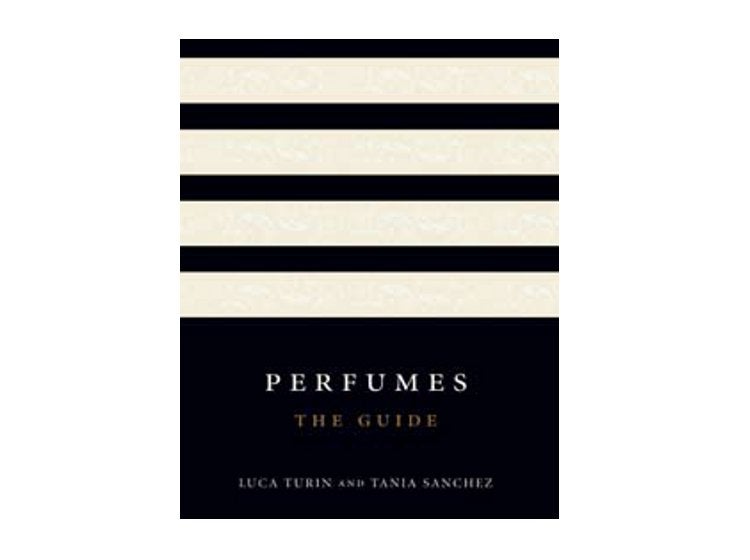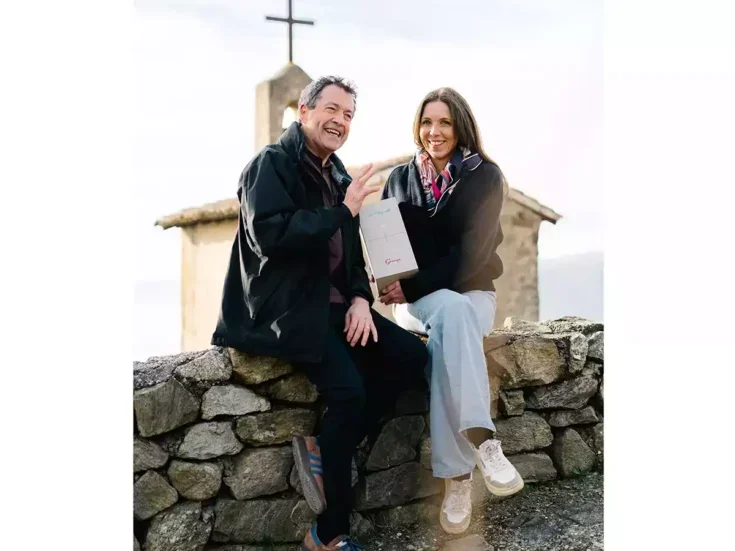
Luca Turin and Tania Sanchez
Perfumes: The Guide
Published by Profile Books/ Viking Adult £20/$27.95
Reviewed by Maggie Rosen
Perfumes: The Guide is intriguing and maddening. Coauthors Luca Turin and Tania Sanchez have collaborated on a conceit so simple that it is a spark of genius. (Turin published a perfume guide in French in 1992 and 1994, but this is his first-and the most comprehensive of any-in English.) A handy guide-at least it will be, when it comes out in paperback-to help the novice navigate the scary dodgems of spray girls (and boys) on the department-store floor, the book provides a good introduction to the science and history of scent, followed by some 1,500 reviews of everything from Jicky (launched in 1889 and still around) to whatever spritz has been endorsed by someone whose 15 minutes has just about been used up.
The preliminary sections provide a brief insight into the origins of modern perfume and the development of a category within the beauty industry, where, the authors propose, it does not deserve to sit and from which it is just starting to emerge, with the help of a few advocates-not least theirs truly.
There is enough chemistry to add an air of gravitas without being gratuitous-though since perfume is mainly alcohol, wine aficionados will be familiar with much of the terminology, anyway-and readers will appreciate the argument that perfume, like wine, art, music, and literature, can be judged according to objective criteria that transcend personal preference. There is also a credible explanation as to why nearly all perfume is entirely artificial, which is not only a necessary state of affairs but a desirable one, too.
The majority of the book is devoted to critiques that run from a laconic single word (Essential, by Lacoste, is “superfluous”) to several pages. There is a star rating system-one is awful, five a masterpiece-and several topten lists. While Turin and Sanchez are not alone in applying such a protocol to perfume-New York Times perfume writer Chandler Burr, who wrote a book about Turin, The Emperor of Scent, adheres to his newspaper’s fourstar standard-it is unusual. An index by rating gives readers the chance to name-check their favorites and quickly calibrate their noses with those of the authors.
Some of the writing is truly lovely and allows the writers’ passion to speak for itself. Anyone who knows Chanel’s Cristalle (five stars), for example, will immediately get the description of its “businesslike briskness that suggests waking up from a night spent with a gorgeous stranger and finding her fully dressed and made up, ready to leave after nothing more than a peck on the cheek, leaving only a cloud of Cristalle and a contact address.
Beautiful, and a little scary.” Likewise, 212 (one star) is summarily but very effectively dismissed as “like getting lemon juice in a paper cut.” Used sparingly, witty critiques like the description of Curious by Britney Spears (incidentally, the bestselling fragrance of 2004) can appeal to everyone’s inner snark: “[…] children’s cough syrup. It lasts forever, and radiates like nuclear waste.” Used too often, they leave a whiff of insecurity.
What gradually irritates, however, is the sheer volume of names dropped and pop-cultural cues highlighted. By invoking everyone from Walter Pater to Tom Wolfe to the myriad icons in the perfume canon, the authors seem to try rather too hard to aggrandize a subject that perhaps does not really warrant it. Sanchez and Turin have written the sections of the book in turn, signing their respective contributions.
While their voices are quite similar, too often there is the overcute smugness of a married couple (which they are) who finish each others’ sentences, even when they bicker, combined with too many snide asides.
It is worth noting that Sanchez is a self-taught perfume expert, and Turin is a biophysicist who specializes in olfaction. He is no stranger to academic controversy, having fingered a fellow researcher at France’s CNRS (Centre National de la Récherche Scientifique) for committing scientific fraud. Ostracized afterward, he was subsequently somewhat vindicated when others made similar accusations.
His iconoclastic “vibration theory” on how we smell upends the long-held “shape theory” and has also met with the scorn of his peers. Perhaps it is no wonder that this ultimate perfume power couple is eager to impress. Maybe this is just splitting nose hairs. The book is illuminating, challenging, and fun. The authors are passionate, and they know their stuff.
Too bad you cannot drink it. Indeed, those who spend a lot of time sniffing as a prelude to tasting may pity those for whom sniffing is the end. But the points of convergence and divergence between perfume and wine are provocative and invite comparison.
Why not do a horizontal of woody florals, for example, against certain Alsace wines, or animal scents against Châteauneuf-du-Papes? The possibilities are endless. At the risk of being presumptuous, then, a plea to Turin and Sanchez for their next book (with luck, there will be one). As Woody Allen said, “If it bends, it’s funny. If it breaks, it’s not funny.” As with perfume, less is more.






